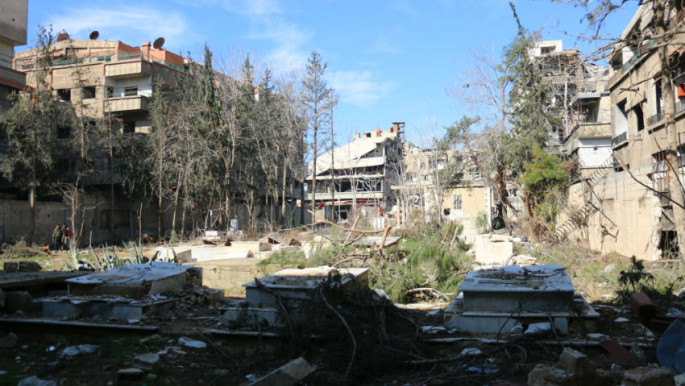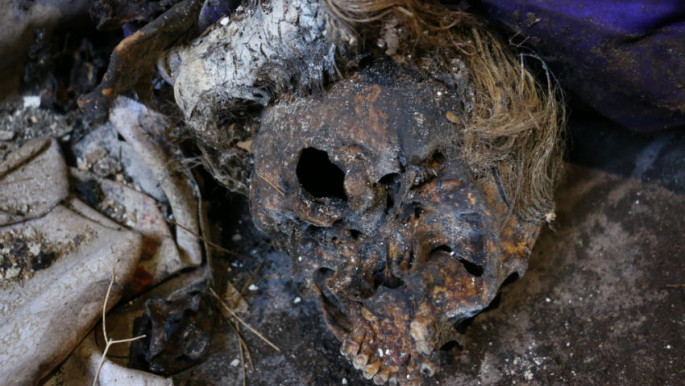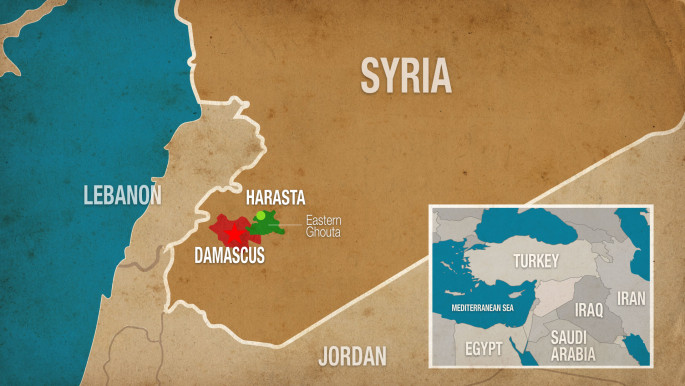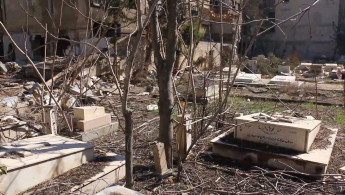|
 |
|
[Qusay Noor] |
Syrian rebel factions took control of Harasta, including
the Military Vehicles Administration base, in January. The town's local council subsequently discovered the damage caused by the regime's tomb raids.
|
 |
|
[Qusay Noor] |
The head of the town's council, Husam al-Beiruni, told
The New Arab how regime forces dug up more than 300 Christian graves and inflicted serious damage to the tombs and the corpses lying inside, as they searched for precious stones and jewellery.
|
 |
|
[Qusay Noor] |
|
 |
|
[Qusay Noor] |
Al-Beiruni told
The New Arab that Christians had been living in Harasta for more than 100 years before the violence that forced them to leave.
"We are trying our best to restore these graves, as we would with any other holy site in Harasta," he told
The New Arab.
|
 |
| |
[Qusay Noor] |
He added that the city had allocated them land in 1937 to use as their cemetary, which became the burial site for Christians from Harasta and neighbouring Arbin.
|
 |
|
[Qusay Noor] |
The town had been home to some prominent Syrian Christian families, including the Nayefeh and Dalul families, as well as the family of Dawoud Rajha, Bashar al-Assad's former defence minister - although his family are not buried in this graveyard.
|
 |
|
[Qusay Noor] |
Al-Beiruni added that the destruction during the regime's tenure of Harasta was not limited to Christian sites, as many places of worship such as mosques as well as homes, schools and other public spaces had been subjected to similar damage.
|
 |
|
[Qusay Noor] |
Many parties to the conflict have inflicted terrible damage on the country, he added, however this incident "of particular barbarity" was the work of Assad's troops.
"However, this regime does not limit itself to the violation of graves," Al-Beiruni said.
|
 |
|
[Qusay Noor] |
"They bombard us with rockets on a daily basis, not only in Harasta but in all liberated areas of Syria."
"We must report to the world, on behalf of the Syrian people,
the kinds of deeds the regime perpatrates against us daily."
Qusay Noor is a journalist and photographer from Eastern Ghouta in Syria. See more of his work hereFollow him on Twitter: @QUSAY_NOOR_






















